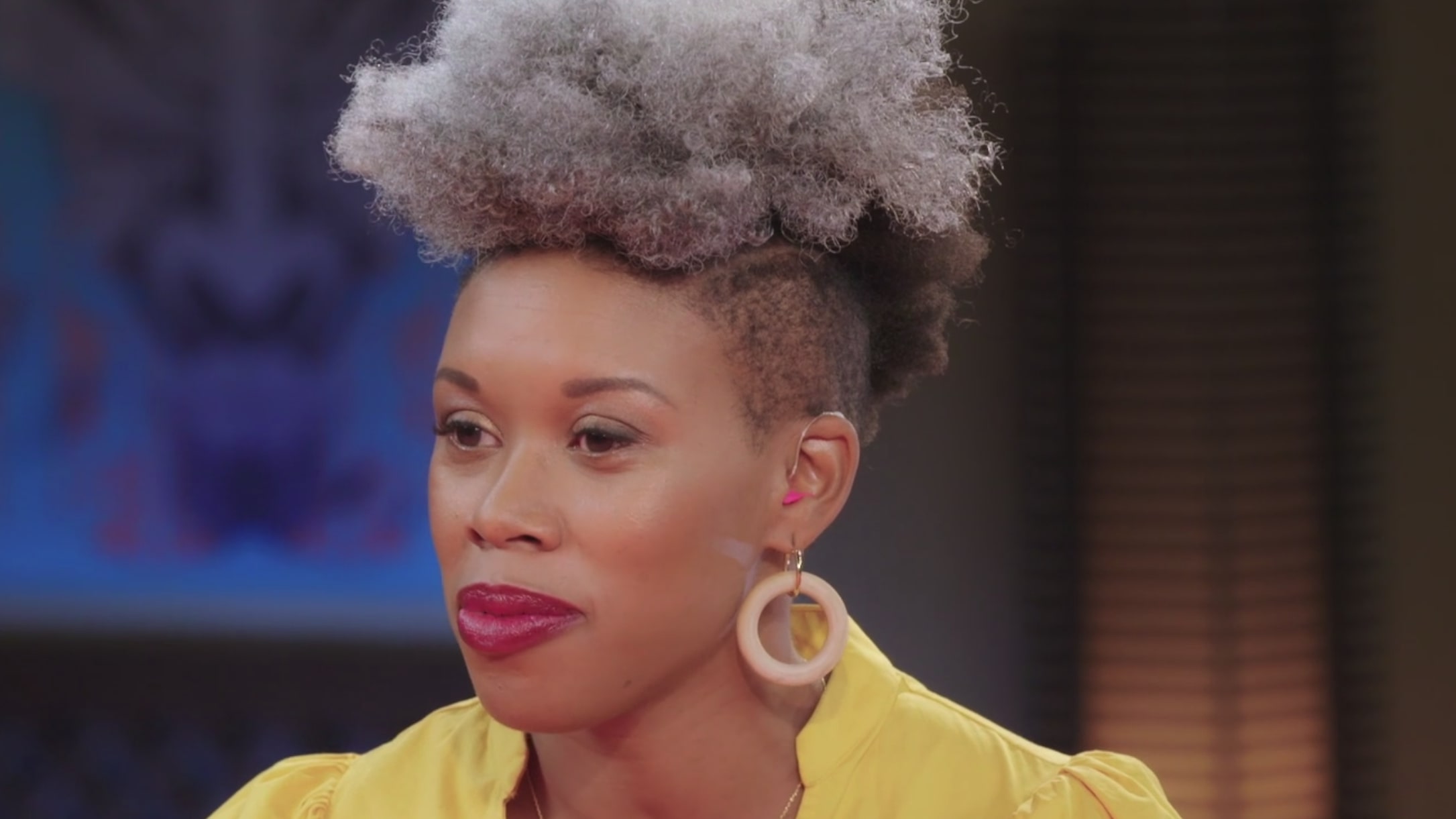A Black woman who was adopted by white parents sat down with Jada Pinkett Smith, her mother Adrienne Banfield-Norris and daughter Willow Smith on Red Table Talk to discuss the nuances of transracial adoption.
Angela Tucker was diagnosed with spastic quadriplegia, a form of cerebral palsy at birth. She was later put up for adoption by her birth mother, Deborah Johnson, who was not able to raise her due to homelessness, People reported.
Both sets of her parents appeared in the episode.
Tucker said her adopted parents took care of her medical needs, but she is now conflicted with how she fits into the Black community.
“I have no sense of strong identity,” Tucker said. “I understand that keeping me alive and prioritizing my medical needs was really important and, look, I’m alive today.”
She added, “I’m alive but dead inside in some ways without knowing my culture and not being connected.”
In retrospect, she concluded that “transracial adoption is not the solution.”
“That’s asking me as a Black woman to assimilate into white culture but to also keep my blackness somehow even though I wasn’t raised within it,” Tucker said.
She continued, “It’s not that I don’t want to identify as a Black woman but not growing up with Black culture and feeling fear when I met my birth mother and my whole birth family, I was a bit afraid to meet them because I haven’t been around a Black family and I haven’t been around that.”
PopSugar noted Tucker feared not fitting in because of her adopted family and living in a predominantly white town.
Pinkett Smith attempted to address Tucker's “internal conflict” and how that’s changed her outlook on life going forward.
Tucker said she had founded an adoption consulting firm, The Adopted Life, that focuses on educating families who adopt children outside of their race.
“Adoptive parents have commandeered the whole conversation,” Tucker said. “Unfortunately, we rarely hear from adopted people themselves because we often think of them as babies and I’m an adult. The reality is we grow up and we’re still adopted.”
On the show, Tucker’s adopted mother, Teresa Burt, thanked her birth mother for the opportunity to raise her.
“I waited 25 years to thank Deborah, thank her for sharing Angela. She did a hard thing, she did something I don’t think I could do, and I did something she wasn’t able to do,” Burt said.
Johnson said she “will forever hurt” about her decision to place Tucker up for adoption.
“At that time, not having a home, not having a job, you’ve got to make a strong choice,” Johnson said. “So I went to a higher power and I said, ‘Help me, please.'”
Johnson directly turned to religion when explaining how she feels about the adopted mother.
“Teresa is her mother. I’m the vessel God used to put [Tucker] here. But that’s her parents right there,” she explained.
In a heartfelt moment, Tucker said she wanted her birth mother to be a part of her life.
“We all know you’ve done the best that you can and that we truly want you to feel like you’re part of our family, that you not being able to parent me doesn’t mean that you give up your rights to know who I am, how I’m doing,” Tucker said.
This isn’t the first time the Facebook Watch series has aired an episode focusing on white people adopting Black children, Blavity reported.
Back in July, Pinkett Smith and Banfield-Norris sat down with Kristin Davis, HBO’s Sex and the City actress, as she discussed life with her two adopted Black children.
Davis spoke about the challenges of being seen as a white savior if they adopt Black children, even though she was personally chosen by her daughter’s birth mother.
“I do feel like the white savior thing is a problem and it’s real, so I don’t want to say that that’s just a myth,” Davis said. “It’s not really what I come across so much … because are you saying then, ‘Don’t try to do anything good because your skin is white?’ Because that's not going to work out.”
“We can’t ever succeed without the Black community embracing our children,” Davis added.
Seventy-three percent of adoptive parents are non-Hispanic white, according to the Adoption Network Law Center. Additionally, Black children are disproportionately represented in the foster care system due to numerous personal and societal factors.

